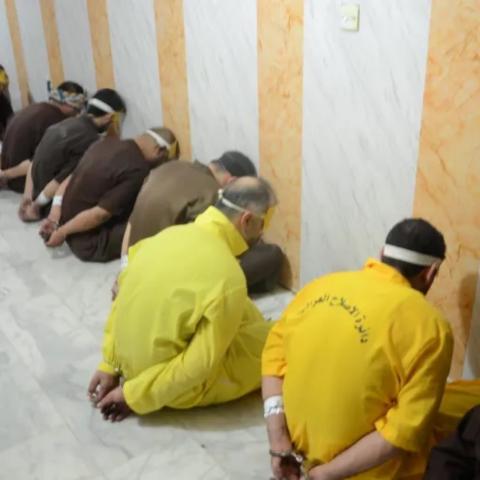
Alkarama highlights the possibility of invoking universal jurisdiction against Iraqi officials involved in collective arbitrary executions, which have recently increased in frequency.
Iraqi authorities recently carried out one of the largest waves of executions since 2003, handing over the bodies of at least 50 executed detainees by hanging at the central prison of Nasiriyah in the south of the country in September.
Rachid Mesli, the director of Alkarama, stated: "It is alarming that Iraqi authorities have been depriving lives and committing massacres under the guise of the death penalty for years, based on politicized trials that do not meet minimum standards of justice."
"Alkarama has closely monitored the erosion of the right to life in a country suffering from significant structural deficiencies in its administration, where the justice system is unfit to impose death sentences while the country remains under the influence of conflicting foreign forces, compromising the independence of institutions, including the judiciary," he added.
Crime Against Humanity
Mesli emphasized that "collective executions in Iraq amount to crimes against humanity," a point also raised by UN experts.
Human rights experts have alerted to the systematic executions carried out by the Iraqi government against prisoners sentenced to death, based on confessions obtained under torture and an imprecise anti-terrorism law. According to international law, these executions constitute an arbitrary deprivation of life and could be classified as a crime against humanity.
In a statement dated June 27, 2024, the special rapporteurs declared: “We are alarmed by the high number of executions publicly reported since 2016, nearly four hundred, including 30 this year, and the explicit political commitment to continue implementing death sentences, in total disregard to the reported irregularities in the administration of justice, cases of enforced disappearances, and torture-tainted confessions, which led to these unfair sentences.“
The experts once again urged the Iraqi government to immediately suspend all executions, ensure a new fair trial for death row prisoners, particularly those accused of terrorism-related crimes, and conduct thorough and impartial investigations into all allegations of enforced disappearances, torture, and ill-treatment, in accordance with international standards, and to make the results public. An official registry in Iraq lists approximately 8,000 prisoners awaiting execution. According to the experts, widespread and systematic arbitrary executions may constitute crimes against humanity, implicating the criminal responsibility of any involved officials, whether directly or by consent.
Alkarama's Activities
For two decades, Alkarama has worked on numerous cases of human rights violations in Iraq, including executions following unfair trials, extrajudicial killings, enforced disappearances, arbitrary detentions, and torture.
Alkarama has filed complaints with special procedures, but the ongoing issue remains the lack of cooperation from the country with UN human rights mechanisms. For example, Alkarama has issued many urgent appeals to UN special procedures regarding the young Yemeni Saleh Moussa Ahmed Mohammed al-Baydani (born in 1993), who has been missing since his abduction in 2009. Iraqi authorities claim to have carried out his death sentence, despite requests and letters from UN mechanisms asking for the suspension of the execution.
Alkarama urges civil society organizations and families of death row inmates in Iraq to break the silence and act quickly to document judgments and collect all necessary information, including the names of judges, political officials, militia leaders, and anyone involved in this crime against humanity.
Alkarama is ready to collaborate with the victims' families, including filing complaints with international justice against anyone involved in arbitrary and unfair trials that have led to death sentences.
